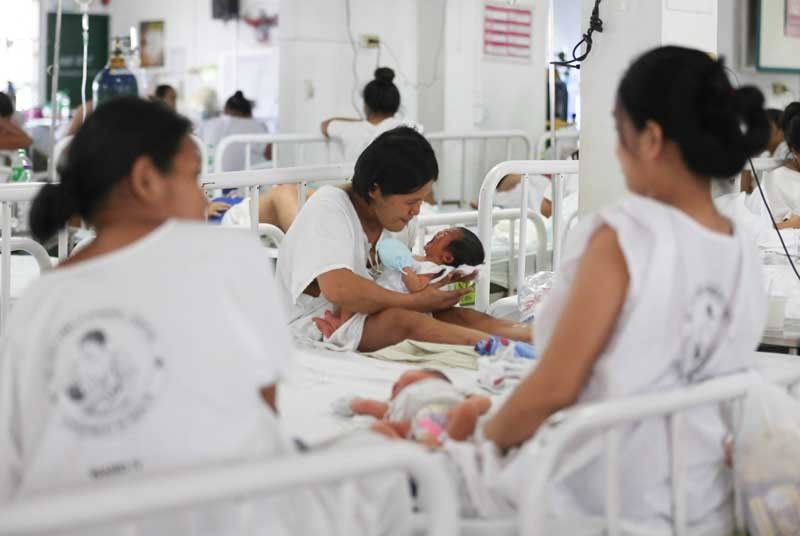Duterte OKs ‘Nutrisyon ng Mag-Nanay’ law

MANILA, Philippines — President Duterte has signed into law a measure that seeks to provide comprehensive health care to mothers and their newborn children in the first 1,000 days of life.
Republic Act 11148 or the “Nutrisyon ng Mag-Nanay (nutrition for mother and child) Act” was signed into law on Nov. 29.
The law seeks to provide comprehensive, sustainable, multi-sectoral strategies and approaches to address health and nutrition problems of newborns, infants and young children, pregnant and lactating women and adolescent females.
“First 1,000 days of life” was defined as the period of a child’s life spanning the nine months in the womb starting from conception to the first 24 months of life.
The period is considered to be the “critical window of opportunity” to promote health and development and prevent malnutrition and its life-long consequences.
The law aims to provide nutritional supplements to women and infants, which includes vaccination, deworming, vitamin A drops, iron and food supplement.
The law shall be implemented at the barangay level through the rural health units and barangay health centers.
The health program shall include health and nutrition services for women in the prenatal period, women about to give birth, women who just gave birth and lactating women.
Health care will also be given during the birth and newborn period and first six months of infancy.
To address malnutrition, health and nutrition services will also be given to females aged 10 to 18.
Areas that are hit by disasters and emergency situations will be prioritized in the delivery of health and nutrition services.
The health department, National Nutrition Council and the agriculture department, in coordination with other state agencies and local government units, are mandated to develop a comprehensive strategy for the first 1,000 days of life.
An alliance of children’s rights organizations has welcomed the enactment of the “First 1,000 Days” law.
“Why is the first 1,000 days of child development important? According to the World Health Organization (WHO), over 5.9 million children under five years old worldwide die due to malnutrition,” said Child Rights Network (CRN).
“Data from the Food and Nutrition Research Institute gravely complement this WHO figure, with the agency disclosing that almost one in three Filipino children aged zero to two is marked as malnourished in 2013,” CRN added.
“There could be no better way to extend the government’s mantle of social protection than to focus on the first 1,000 days of child development. Such focused government support will ensure that proper nutrition, care and medical needs are given to those who urgently need it at the most pressing time,” it said.
CRN said the new law could also prove to be economically beneficial in the long run, noting that a joint research of the United Nations International Children’s Fund and the National Nutrition Council showed that every $1 (P53) invested in interventions to combat child malnutrition and accompanying problems can save around $12 (P639) in foregone earnings or health expenditures. – With Janvic Mateo
- Latest
- Trending






























